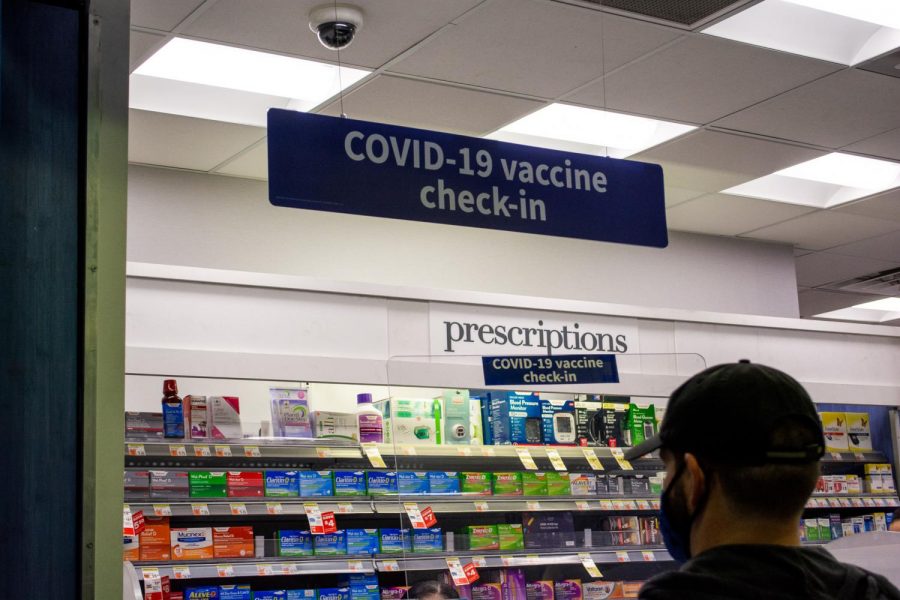Opinion: The CDC must grapple with its racist history
As vaccination efforts continue at NYU and across the country, the CDC must address its history in order to overcome vaccine hesitancy among Black Americans.
Although the demand for the COVID-19 vaccine exceeds its availability at NYU, there is still a noticeable hesitancy among Americans. Due to a long history of medical misconduct at the hands of the federal government towards Black Americans, the percentage of the demographic that would immediately take the vaccine is lower. (Staff Photo by Manasa Gudavalli)
April 21, 2021
On April 5, NYU announced that vaccine efforts would be amplified following the increase of vaccine stock. In an email sent by Dr. Carlo Ciotoli, executive lead of NYU’s COVID Prevention & Response Team, the efforts began with the vaccination of 1,200 students, just in time for New York State’s expansion of vaccine eligibility which permitted residents aged 16 and older to receive vaccines beginning April 6.
The university employed a lottery system, randomly selecting 1,200 of the students who filled out the COVID-19 Vaccine Interest & Certification Survey. Demand for the vaccine exceeds its availability, which is why NYU encouraged students to seek vaccination appointments elsewhere and not to rely solely on the university’s efforts. Though the demand for vaccines is high, there is still a noticeable hesitancy among Americans. Some of this comes from unfounded fears, such as conspiracies of microchips in the vaccines, or baseless claims that the vaccine is deadly. However, not all apprehension is unjustified. There is a long history of medical misconduct at the hands of the federal government towards Black Americans.
Black communities are disproportionately affected by COVID-19. However, a poll conducted by Pew Research Center revealed that only 42 percent of the demographic would immediately take the vaccine. This documented distrust in the vaccine is rooted in fact. There is no history of vaccinations being used to microchip individuals or to alter human DNA, but there is a history of Black Americans being denied proper, effective medical care.
The Tuskegee Syphilis Study, also referred to as the “Tuskegee Study of Untreated Syphilis in the African American Male,” was an unethical study conducted by the Centers for Disease Control and Prevention and the United States Public Health Service that spanned 40 years, from 1932 to 1972.
A total of 600 Black male sharecroppers in Macon County, Alabama enrolled in the study, 399 of whom had latent syphilis. Medical exams, transportation to appointments, meals on examination days and even remedies for other ailments were used as an incentive for participants.
The administrators of the study withheld treatment from men who were unaware of their diagnosis in order for medical professionals to observe the effects of the untreated illness. They were given placebos and were made to believe that they were being healed. Despite the discovery of penicillin in 1947, the study did not administer it to the participants, allowing them to suffer from the illness.
These accounts do not mean that refusing the vaccine is a sound decision. This is merely to say that the particular reservations of Black Americans comes from a proven history of injustice that still perpetuates a multigenerational distrust of the government.
There is no evidence of this corruption in vaccine distribution, but scientists and medical professionals still have a responsibility to address these concerns in a way that specifically pertains to the experiences of Black Americans.
Opinions expressed on the editorial pages are not necessarily those of WSN, and our publication of opinions is not an endorsement of them.
Email Sydney Barragan at [email protected].


























































































































































